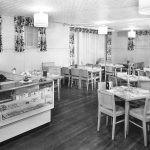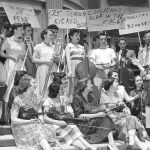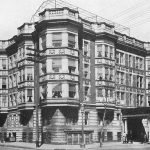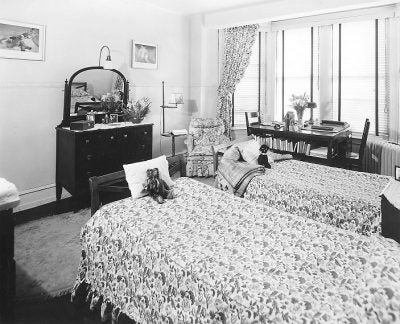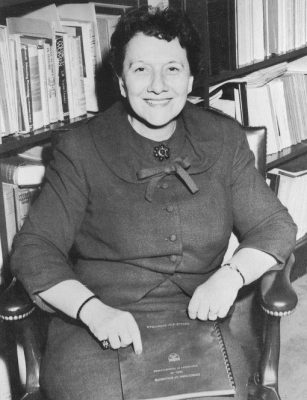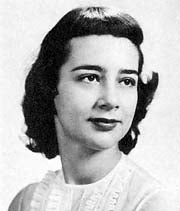| Name/Origin | Quotation | Picture |
|---|---|---|
| Ryda Dwarys Rose, 1950 B.A | Penn has been my wonderful home for the last thirty-three years. … The Penn of these later years is much different from my undergraduate years. It was, indeed, difficult and sometimes very nasty to be a woman science major among a community of male professors who wished to express dominance. But we fought them and confronted them on their own demanding terms. Imagine a ladies’ room in Houston Hall and being able to walk securely down Hamilton Walk, being allowed to enter the once-male-exclusive Wharton and professional schools! Unheard of in the later ’40s! | |
| Jean Shaw, 1952 B.A. | We have needed each other and the University as a totality both to achieve our little parcels of vision and to reinforce our convictions in ourselves. | |
| Althea Stauffer Kratz Hottel, 1929 B.S. in Ed.; 1934 A.M.; 1940 Ph.D.; 1959 LL.D. (honorary) | The Engineering Schools did not attract many women. Their opportunities at that time in the labor market were too restricted. One of them was rewiring her room in Sergeant Hall to perform certain experiments. Not to nip a budding engineer in the bud, we had the Buildings and Grounds Department check all she was doing to ascertain safety regulations were not violated. They became quite interested in her ingenuity and subsequent progress academically. | |
| Jean McLennan, 1955 B.A. (College for Women) | Penn professors did not usually show preferential treatment toward men, but teaching graduate students especially in the sciences sometimes made life very difficult for women. Unless you were very sure of your own goals and worth it was very hard at times to stick it out. I learned some very basic things at Penn: 1) To research information I did not know, organize it, and present it for personal and others use, 2) To trust my own judgment, and 3) To value my education at Penn. | |
| Frances Bondi Glenn, 1956 D.D.S. | In my third year [1954-1955] I took the Inlay Exam. My professor said in front of the patient, “I would grade this an A, but as you will just get married, have children, never practice, and as you are taking a man’s place here, I am grading it a B.” I exited the clinic with my vision clouded by tears and literally bumped into Dean Lester Burket, who wanted to know the cause of my distress. I hesitated in telling him but he insisted. Two hours later, the professor was seen leaving the school with all his personal effects-Dean Burket had fired him. |
Women at Penn: Quotations 1950-1959
Dedicated to the memory of Ruth Branning Molloy, B.S. in Ed. 1930

